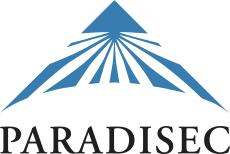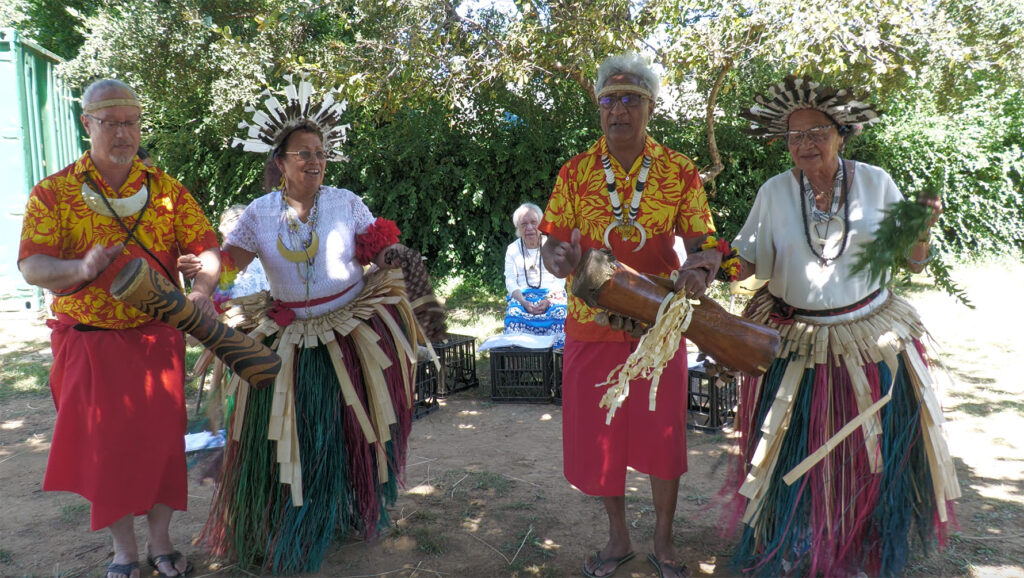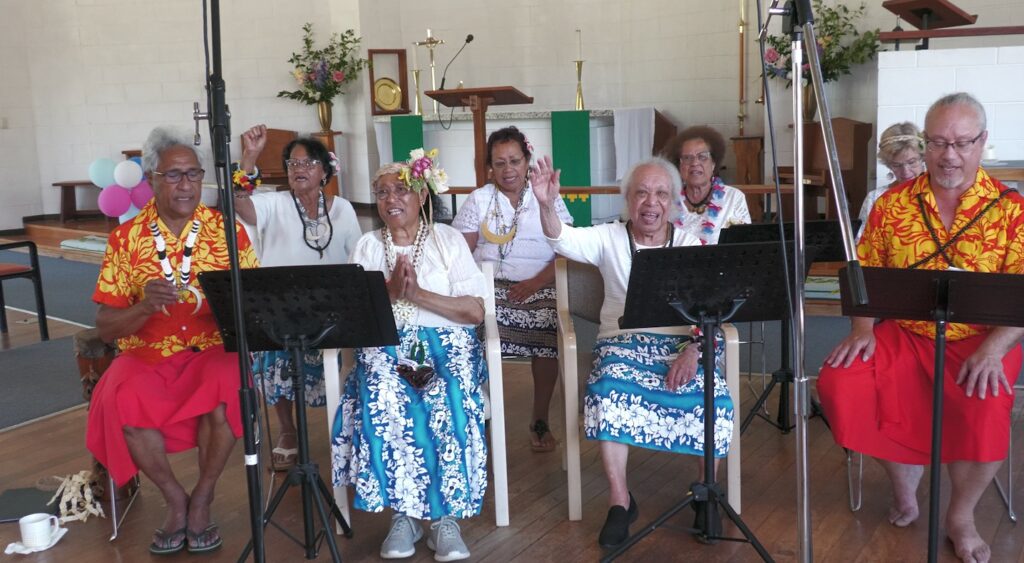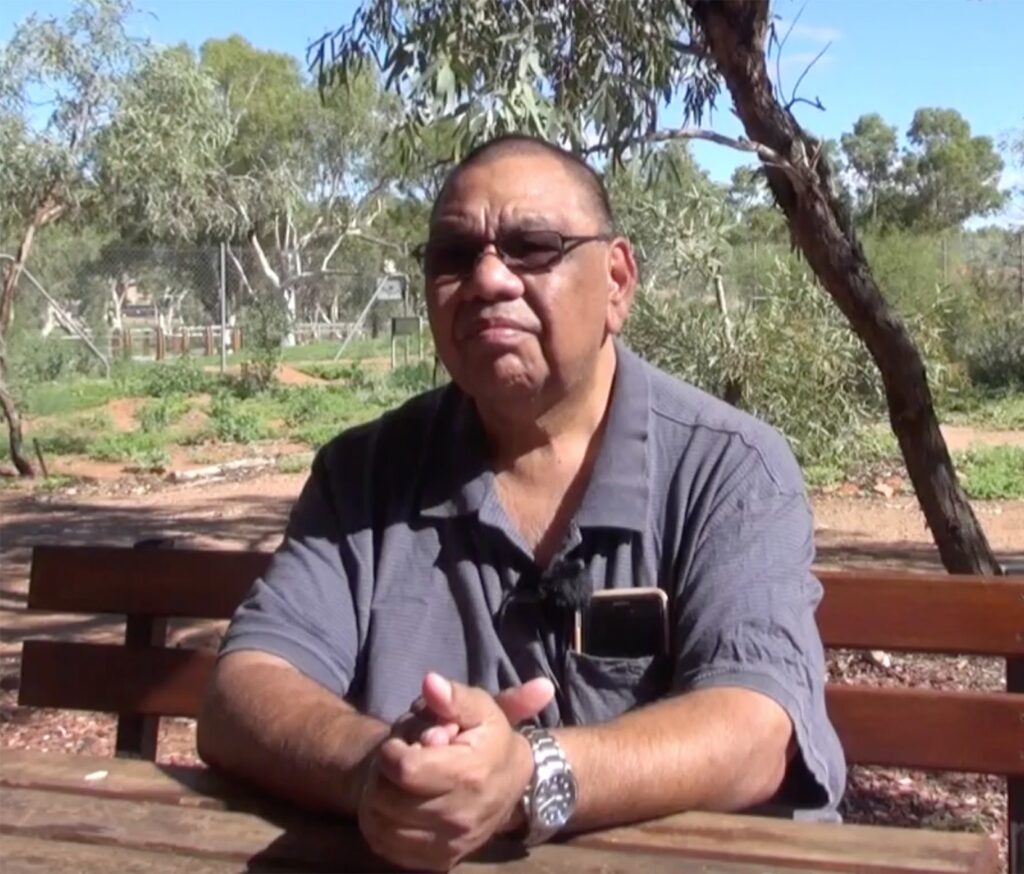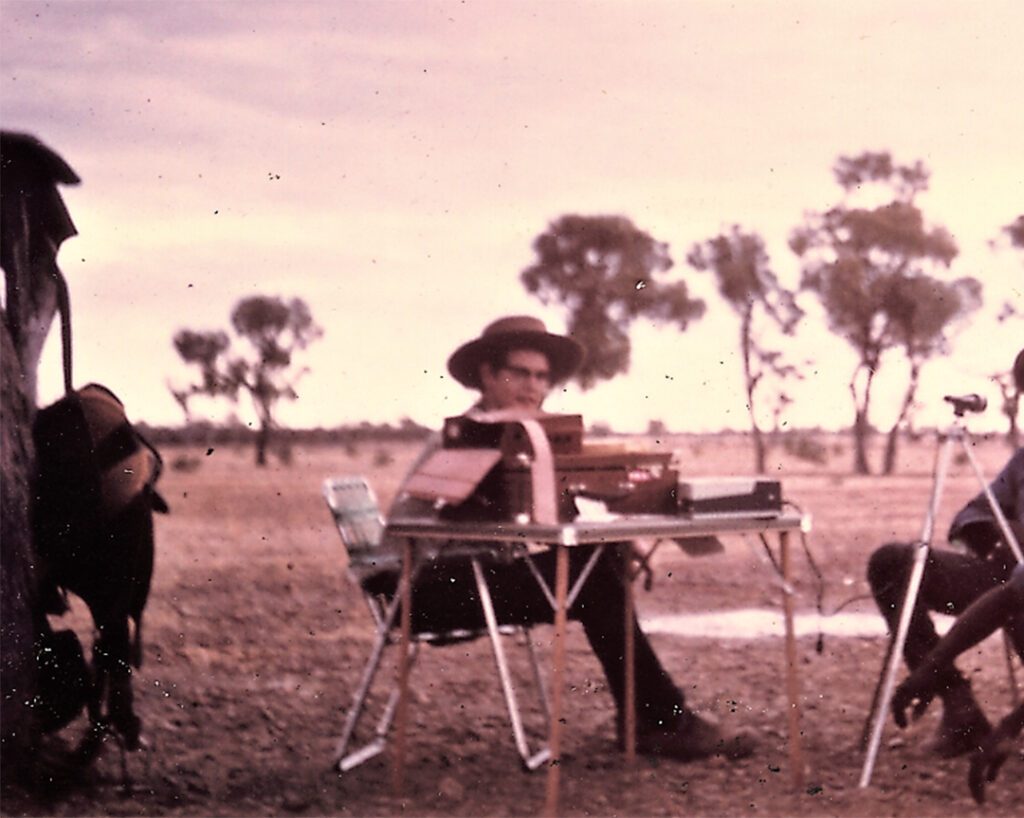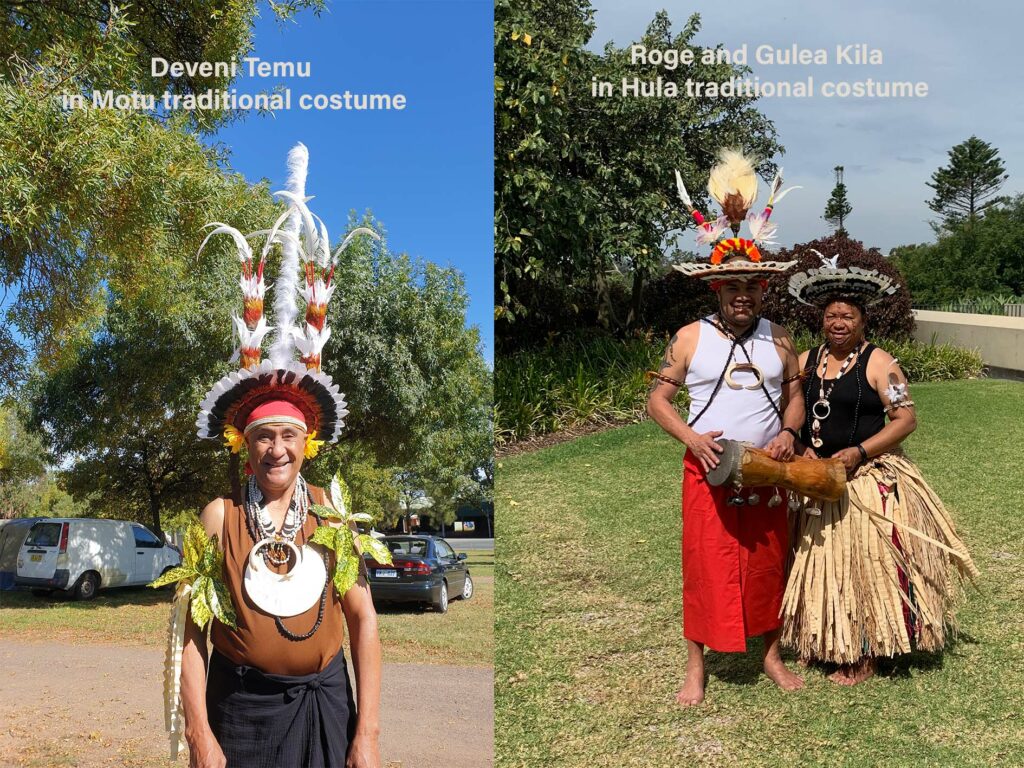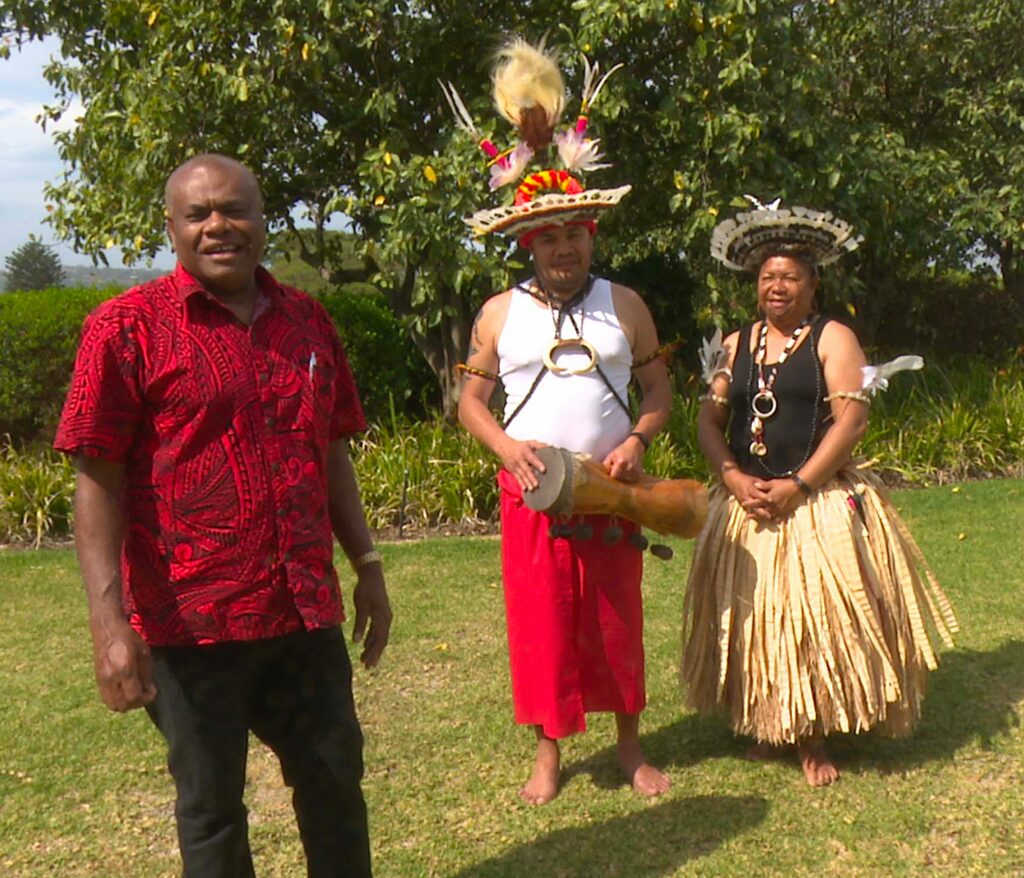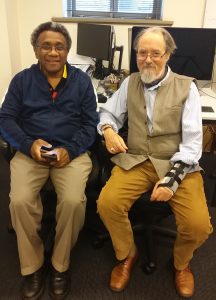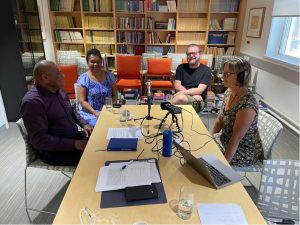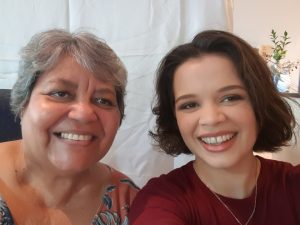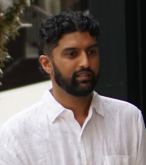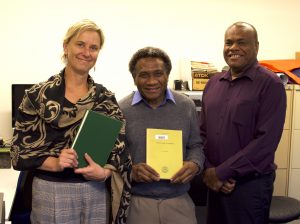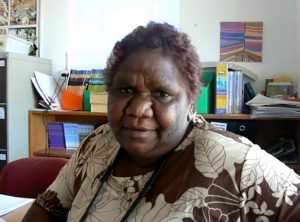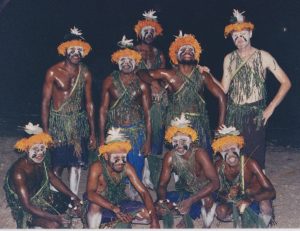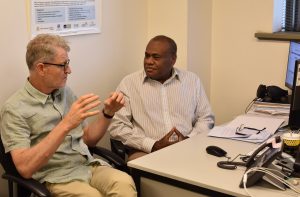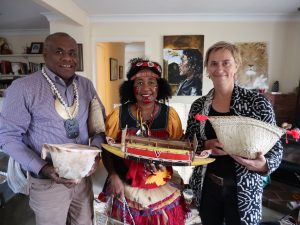Toksave – Culture Talks
The PARADISEC Podcast Series
Produced by Jodie Kell and Steven Gagau
Music and Language are central to identity in Indigenous communities and the return of legacy research recordings can be an emotional and exciting rediscovery of the past, contributing to the continuation of cultural practices.
This is where the archived records of the past have life breathed back into them once again!
Thanks to the ARC Centre of Excellence for the Dynamics of Language for their support of this project, and the Toksave launch party that was part of the United Nations Year of Indigenous Languages in 2019.

Season 4
Episode 15
This is the first of two episodes featuring the music and culture of North Malaita, Solomon Islands from the IF01 collection of Ian Frazer in his fieldwork with people of To’abaita and neigbouring Baegu, Baelelea and Lau. In this episode, we feature the cultural practice and music surrounding the ngali nuts which are harvested from a Canarium Almond tree. Through conversations with Ian Frazer and Mary Sattin, a Malaitan woman, we are transported back to the 1970s during the ngali nut season where communities working customs and traditions were inspired through music in the cracking of ngali nuts, the retrieval of the kernel for pounding to “kata” pudding with roasted and mashed taro. Ngali nuts were an important and significant food source as a delicacy meal for families, for celebrations in community ceremonies and trading and bartering.
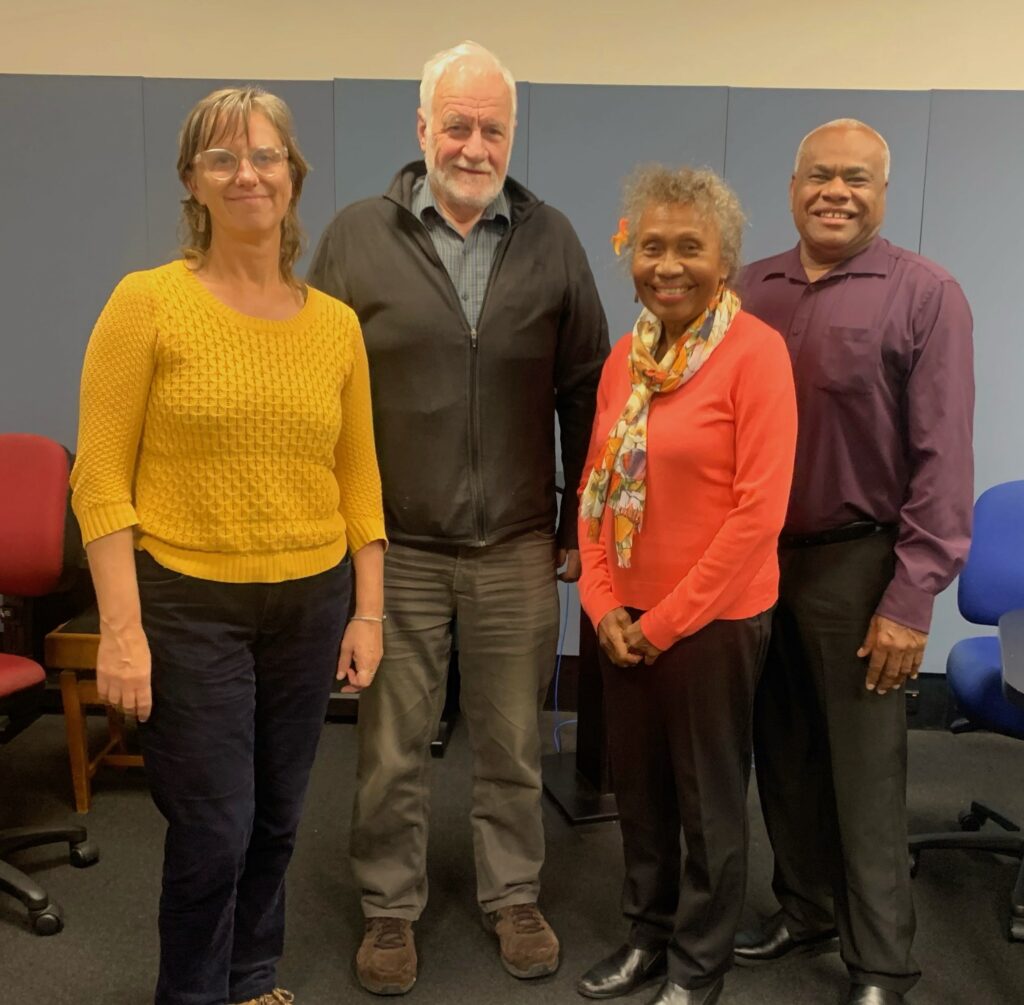
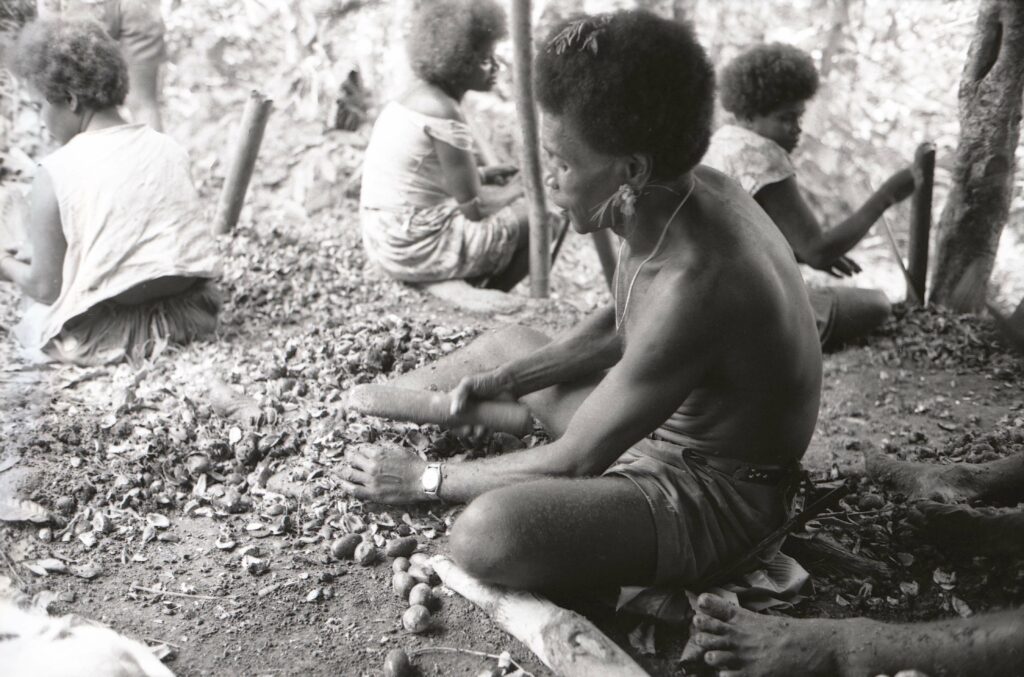
Episode 14
Following on from Episode 13 (below), we continue our exploration of music of the Central Province, Papua New Guinea featuring the PNG Peroveta Singers of Canberra. This is a special episode where the group responds to the PARADISEC collections of the MG1 collection of Murray Groves and the IC1 collection of Ian Campbell with a Sene performance of traditional songs whose meanings are explained by group members Deveni Temu and Tommy Dietz. Sit back and enjoy the journey through the beautiful songs of the region which are also available with transcriptions in the PC2 collection or on our Youtube channel.
Episode 13
This is the first of two episodes featuring the PNG Peroveta Singers of Canberra, a group of diaspora community members who share and perform the music of Central Province, Papua New Guinea. They respond to the PARADISEC collections: the MG1 collection of Murray Groves and the IC1 collection of Ian Campbell with song and dance performances recorded in the ACT in 2023. This episode focuses on Peroveta (Prophet Songs) and includes an interview with group leader Deveni Temu and performances by the group in various languages from Hiri Motu to Hula, Keapara and Mailu from the southeastern Papuan coast and over to Rarotongan from the Cook Islands. The full performance by the group of Peroveta songs can be accessed on our Youtube channel.
Season 3 (Episodes #10-12)
Leku Leku Re-creation by Roge and Gulea Kila
This film shows a side-by-side presentation of the song Leku Leku from the wax cylinder recording made as part of the Daniels Ethnographical Expedition to British New Guinea in 1904, which Jodie Kell has overdubbed to run into the modern re-interpretation of the song by Roge and Gulea Kila, done over 100 years later. This demonstrates the revitalisation of song traditions through reconnecting with archival recordings. You can hear more about this song and these early recordings in Episodes 10 and 11 below.
Episode 12
William Santo is a Gudjal elder, author and musician. Opening with William’s song, ‘Buried in the Sand’, this episode discusses William’s long-term aspiration to uncover Gudjal language resources held in archives and utilise them to rediscover Gudjal history and culture and revitalise the Gudjal language. He is joined by colleagues in this project: linguist Peter Sutton, music researcher Myfany Turpin and linguistic student Alex Anderson. Included in the episode are excerpts from recordings made by Peter in the 1970’s with Gudjal elders and excerpts of the language learning podcast created by William and Alex.
The Sutton recordings are made available courtesy of AIATSIS, Sutton Collection, item 1913A. AIATSIS has the largest recording of Indigenous Australian ethnographic recordings. You can search their catalogue here: https://iats.ent.sirsidynix.net.au/client/en_AU/external
Episode 11
Following on from episode 10, we continue discussions about early recordings made by Charles Gabriel Seligmann during the Daniels Ethnographical Expedition to British New Guinea in 1904. Deveni Temu brings his perspective to the history and context of the recordings. He is a Hula speaker who was born and raised in Kapari and Viriolo villages and who worked as the Pacific Librarian in the Menzies Library of ANU, Canberra. We hear back from Roge and Gulea Kila who share musical responses to the 1904 recordings; a re-enactment of a Leku Leku song, and a stunning Ate Ate song of lament. All three guests express the value of archival recordings for descendants, connecting the past with contemporary relevance and contributing to cultural continuity.
Episode 10
This is a special episode of Toksave: Culture Talks produced in partnership with the British Library and the Institute of Papua New Guinea Studies as part of the project “True Echoes: Reconnecting Cultures with Recordings from the Beginning of Sound”. It includes excerpts from some of the earliest sound recordings made on wax cylinders by Charles Gabriel Seligmann during the Daniels Ethnographical Expedition to British New Guinea in 1904. Roge and Gulea Kila are from Hula and nearby Babaka village in Rigo District of PNG, where some of these recordings took place. In conversation with Steven Gagau and Amanda Harris, they share their rediscovery of the past, making meaning of the songs and words in these historical recordings.
Season 2 (Episodes #6-9)
Episode 9
Johnny Obed and Kirk Huffman join Jodie and Steven discussing the cultural significance of sharks in Vanuatu and across Melanesia inspired by stories in the SD1 collection of Simon Devylder. This episode sees the return of Paamese man Johnny Obed and he is joined by former long term curator of the Vanuatu Cultural Centre, Kirk Huffman. Kirk’s association with Simon on such recordings and research work motivated him to share his long experience in Vanuatu, across Melanesia and the Pacific supporting the maintenance of traditional cultures in a fast-changing world. This episode sees Johnny and Kirk as storytellers sharing their knowledge and memories of Melanesian culture.
Episode 8
Eileen Bobone and Mae Carroll join Jodie and Steven to talk about the 2020 Field Methods in Linguistics course conducted at the Australian National University in Canberra with a focus on the Sinaugoro language of the Rigo District of Central Province, PNG. The personal and cultural connections of Eileen as a Sinaugoro speaker working with Matt in the course led to conversations about the recordings in the AC1, MR1 and TD1 collections. From a linguistics context to storytelling of the Sinaugoro region, the conversations with Eileen brought about interesting cultural and gender-based perspectives.
Episode 7
Associate Professor Payi Linda Ford and Emily Tyaemaen Ford, a powerful mother and daughter team talk about their research journey that lead to the creation of the LPF collection, a private collection held in PARADISEC. Payi and Emily share their experiences of listening to the voices of their relatives who hold important Marranunggu knowledge and language. It is an emotional rediscovery of the past and shows how online repository and archives can contribute to new ways of intergenerational knowledge transmission.
Episode 6
Prash Krishnan joins Jodie and Steven to talk about the JS2 Collection deposited by researcher and Professor Jeff Siegel of the University of New England, NSW. Conversations with Jeff have helped Prash to better understand his journey to re-connect his linguistic and cultural history of Fiji Hindi developed as a plantation language and his identity as an Indo-Fijian of the Girmitiya heritage.
Season 1 (Episodes #1-5)
Episode 5
Tom Johnny Obed is a Paamese man living in Sydney. He is an associate of Steven Gagau through the Wantok Association of Sydney, a representative body for Melanesian people living here. Johnny, as he likes to be known, met linguist Terry Crowley during his fieldwork on Paama Island, when Johnny was teaching high school in Vanuatu. Our conversation touches on language, education and music as we discuss Terry’s recordings and writings, (collections TC1throughTC11) taking a moment to reflect on the gift he gave Johnny’s people.
Episode 4
We are transported to the Western Desert of Central Australia as Pintupi-Luritja woman Linda Tjungkata Anderson listens to her father Nosepeg Tjupurrula singing songs from the Wanji Wanji public song set recorded by musicologist Professor Richard Moyle in 1976. These legacy recordings, held at AIATSIS in Canberra, were taken back to the community in 2018 by Dr Myfany Turpin. Linda’s interview is archived in MMT1, a PARADISEC collection of interviews Myfany has made with descendants of such legacy recordings and the sound of her father’s voice and his songs evoke Linda’s memories of a time when corroborees were part of everyday life.
Episode 3
Following on from Episode 2, this podcast is a kind of blindfold test as we listen to a range of musical examples Steven Gagau has chosen from the MW6 collection, recordings musicologist Michael Webb has not heard for 25 years. The ensuing conversation highlights the diversity and creative breadth of Tolai musical practices and their connection to the history and identity of the Tolai people.
Michael Webb joins members of the Narox Band from Duke of York Islands in Rabaul 1993 at a video shoot for their song ‘Tinora’. He wears traditional bilas (dance decoration/dress) and at the studio created the sax and trumpet riff for the song and played it on keyboard, then mimed it at the video shoot.
Episode 2
When Sydney Conservatorium Associate Professor Michael Webb met Steven Gagau, they quickly realised they had Tolai connections and Tok Pisin language in common. It turns out that Michael did his PhD research in the Rabaul region where Steven is originally from. As PARADISEC digitised and archived MW6, Michael’s collection of tapes and videos, Steven found himself wearing different hats as archivist and community member. Listen in to the conversation between the researcher and the Tolai.
Episode 1
Grace Hull joins Jodie and Steven to talk about the RL1 collection recorded by Ralph Lawton in the Trobriand Islands, off the east coast of Papua New Guinea. Grace may live far from the village where she grew up, but she carries the village in her heart and this is very apparent as she shares her knowledge of Trobriand music and culture and comments on the value of these recordings.
Toksave Launch Party – November 2019
On 14 November 2019, PARADISEC officially launched the Toksave Podcast series. With the kind support of Verge Gallery at University of Sydney, and featuring talks from some of the interviewees from the first episodes of the podcast, as well as performances from Black Birds and the Barayagal Choir, the evening event showcased the richness and value of PARADISEC’s preservation work. Rounding out the cultural offerings, guests were treated to a Fijian style buffet feast catered by Lomani Vale Events.
PARADISEC thanks everyone involved in this successful launch party event!
